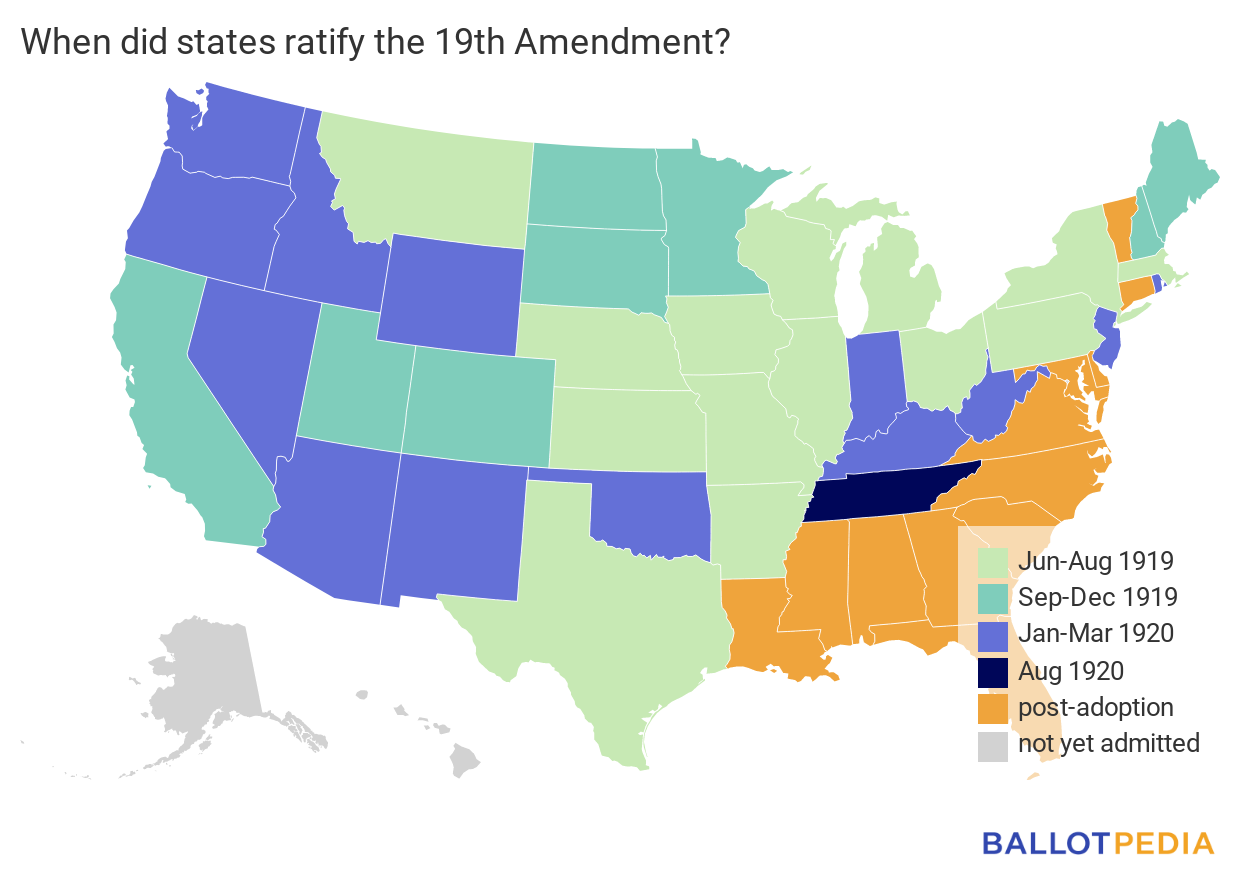Next week: The 100th anniversary of the women’s suffrage amendment
Next Tuesday—August 18—is the 100th anniversary of the ratification of the 19th Amendment to the U.S. Constitution—the women’s suffrage amendment. The specific text of the 19th amendment reads:

We’re highlighting this important anniversary with a look back at the history of the women’s suffrage movement, both at the national and state level. Today, we’ll present an overview of the adoption of the 19th Amendment. Next week, we will examine the statewide ballot measures designed to grant women's suffrage that were on the ballot before the 19th amendment was passed.
According to the National Women's History Museum, the women’s suffrage movement dates back to 1848. An estimated 300 men and women attended the First Women's Rights Convention in Seneca Falls, New York, in July 1848. At that event, organizers declared that men and women are created equal and have the same civic rights and privileges.
On May 19, 1919, Congress convened a special session to address House Joint Resolution 1 (HJR 1)—which would eventually become the 19th Amendment.
The House of Representatives passed HJR 1 by a vote of 304 to 89 and the Senate passed it 56 to 25. After passing both chambers of Congress, it required the ratification of 36 of the then-48 states to be ad. Tennessee became the 36th state to approve what became the 19th Amendment on August 18, 1920.
The Constitution’s 15th and 19th Amendments prohibited the government from denying a citizen's right to vote on account of race and sex, respectively. However, some states and localities had laws, such as poll taxes, reading and legal knowledge tests, and grandfather clauses, that disenfranchised men and women of color. Intimidation was also used to keep people of color from registering to vote and voting. On August 6, 1965, President Lyndon B. Johnson (D) signed the Voting Rights Act, which was intended to enforce the 15th Amendment.
The map below shows when states ratified the 19th Amendment. The states shaded yellow did not vote for ratification until after the 19th Amendment was added to the U.S. Constitution. Alaska and Hawaii had not yet been admitted to the U.S.

We’ll be back on August 18th with more. I hope you’ll enjoy learning about this important milestone in the history of voting rights in the U.S.
|